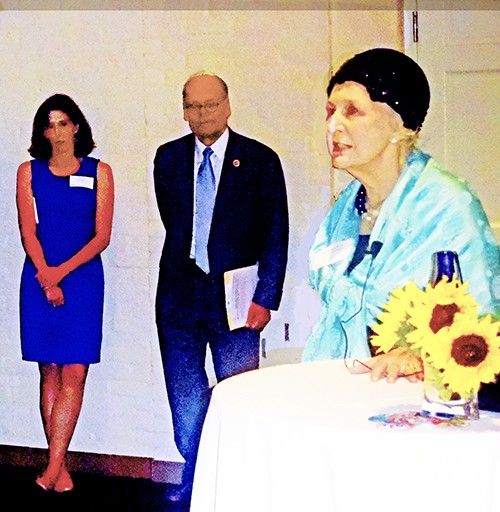As the new session of Congress gets underway, members are submitting legislation to be considered over the next two years. Memphis’ own Representative Steve Cohen has introduced 16 measures to be considered, including a constitutional amendment to abolish the Electoral College. The Electoral College amendment brought a swift condemnation from the Shelby County GOP, who used a Brietbart.com link to plead their case.

Steve Ross
Cohen has sponsored this constitutional amendment several times. He proposed it in the 114th and 115th Congresses. It should come as no surprise that he’s putting it forward now, as a member of the majority.
A little history: The Electoral College came about thanks to the “Grand Compromise.” Southern states had a problem: They were really rural. They didn’t have the population density of northern states. They also had another concern: slavery. In 1787, slaves didn’t count for the purposes of apportioning Congressional Districts. As a result, the South’s ability to have an impact on national politics would be greatly diminished.
Enter the three-fifths compromise, two Senators per state, and the Electoral College. Thanks to this compromise, Virginia had an outsized impact on national relections for decades. Seven of the first 12 presidents hailed from Virginia. Nine of 16 pre-Civil War presidents hailed from Southern states. The three-fifths compromise and the Electoral College together gave Southern states incentive to increase their slave population to increase their political power in the nation. The three-fifths part of the Constitution was repealed after the Civil War, but the Electoral College, despite its role in empowering slave states, lives on. Since its inception, the Electoral College has favored smaller states over larger states. This holds true today.
• Twenty U.S. states, including Texas, California, and Tennessee have less electoral power per vote to decide the presidency than the other 30.
• Fifteen states have more power in the Electoral College than their population. Seven-and-a-half percent of the population has 12.6 percent of the Electoral College votes.
• The 20 largest states have less power than their population. Seventy-five-point-six percent of the U.S. population has only 68.4 percent of the power to decide the presidency. This disparity is the rationale behind Cohen’s constitutional amendment. By relying on the popular vote, the majority of the nation’s voters are better served.
This is the third time Cohen has filed a constitutional amendment to abolish the Electoral College. Certainly, he knows it’s a long shot, but as the saying goes, “If you don’t ask, you don’t get.”
The amendment would need 290 votes in the House. Currently, Democrats occupy 235 seats. So 55 Republicans would have to join the effort. Then, two-thirds of the Senate would have to agree. With only 47 Democrats in the Senate, it’s unlikely the amendment would even come up for a vote. And even after meeting those two very high bars, the amendment would have to be ratified by 38 states.
Fifteen states currently get a great deal more power from the Electoral College than their population warrants. That alone is enough resistance to keep the amendment from being ratified. But there are another 15 states who also benefit some from the system. That brings the total to 30. Some of those 30 states might choose to ratify. But there are plenty of states, like Texas and Florida, who currently lose electoral power but are unlikely to push it forward for purely partisan reasons.
Since 1980, smaller Southern and Western states with less than six Electoral College votes have generally favored Republicans. No Republican-led state legislature is going to give away that advantage, no matter how badly it disadvantages voters in their state. The GOP controls both houses in 30 states. Democrats control just 18 (two are split). To get to 38 states, you would need the majority of GOP-led legislatures to approve the amendment, which seems unlikely.
But let’s say the amendment did make it past Congress. The amendment would have seven years to be approved by 38 states. That still leaves time for Democrats to gain power and get it passed … even if that’s not very likely.
In the end, Cohen is right to bring this amendment forward, even if it doesn’t have much of a chance of moving. By doing so, he’s placing a marker on the right side of history. And if conditions on the ground change to make this more viable, he’ll be ready.
Steve Ross is a longtime contributor to the Flyer and proprietor of the watchdog blog, Vibinc.
 Memphis Police Department
Memphis Police Department  JB
JB  JB
JB